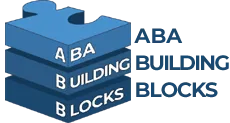Introduction to Registered Behavior Technician Certification
Are you feeling overwhelmed by the complexities of obtaining your registered behavior technician certification? You are not alone. Many small ABA therapy practice owners like yourself face a similar predicament. Dealing with prerequisites, and processes, plus maintaining ethical standards while running your practice can seem like an uphill battle.
In Applied Behavior Analysis (ABA), the Registered Behavior Technician® (RBT®) plays a pivotal role. Specializing in delivering behavior-analytic services, RBTs work under the supervision of an RBT Supervisor and/or RBT Requirements Coordinator. Their job is significant and multifarious, stretching across homes, schools, and clinics. Grappling with the rigorous demands of certification is essential in developing your practice and navigating the vast field of ABA.
Understanding the Role of a Registered Behavior Technician
As an RBT, your duties include implementing the treatment plans crafted by the supervising Board Certified Behavior Analyst (BCBA) or Board Certified Assistant Behavior Analyst (BCaBA). You are the bridge connecting the therapy and the client, making your role integral to the success of ABA therapy.
Importance of RBT Certification in Behavior Analysis
In the recent years of rapid growth in the field of ABA, the demand for RBT certification has increased significantly. More and more payers are now necessitating behavior therapists to be credentialed as RBTs before they deliver services, emphasizing the importance of this certification.
Below is a quick roadmap on what to expect on your journey towards obtaining the RBT certification:
- Understand the RBT role, scope of work, and importance in ABA.
- Be familiar with the age, education, and background check prerequisites.
- Learn and complete the 40-hour training course.
- Master the competency assessment and pass the RBT examination.
- Discover how to utilize BACB’s resources and support system.
- Be aware of the process and importance of maintaining and upgrading your RBT certification.

Embrace this journey with ABA Building Blocks as we assist you in expediting the certification process, deepen your understanding of the field, and facilitate the development of your therapy practice. Now, let’s delve deeper into what it takes to become a qualified Registered Behavior Technician.
The Path to Becoming a Registered Behavior Technician
Embarking on the path to become a Registered Behavior Technician requires a commitment to learning, a passion for helping others, and a dedication to improving the quality of life for those who need it most. Let’s break down the process into three major steps: meeting the eligibility criteria, understanding and completing the 40-hour training course, and navigating the application process.
Eligibility Criteria for RBT Certification
Before you can kickstart your journey towards becoming an RBT, you must meet certain eligibility criteria. The first requirement is that you must be at least 18 years old and have a high school level education or equivalent. Additionally, you must pass a background check within 180 days of applying for the RBT exam. Any criminal history may affect your eligibility for certification.
At ABA Building Blocks, we understand that a background check may seem daunting. But don’t worry, we’re here to guide you through the entire process. We believe in nurturing and supporting our trainees, ensuring they have all the resources they need to achieve their RBT certification.
Overview of the 40-hour Training Course
Once you’ve met the initial eligibility requirements, the next step on the path to becoming an RBT is completing a 40-hour training course. This curriculum is designed to meet the Behavior Analyst Certification Board RBT requirements, covering a wide range of topics such as the principles of Applied Behavior Analysis (ABA), understanding and implementing behavior reduction and skills acquisition plans, and maintaining professional conduct and scope of practice.
At ABA Building Blocks, our 40-hour course provides clear instruction, video models, and interactive activities to ensure you understand and can apply these tasks effectively. The training course must be completed within 180 days, and not less than a five-day period, to align with the BACB’s requirements.
Understanding the Application Process for RBT Certification
After successfully completing the 40-hour training course, the next step is to navigate the application process for the RBT certification. This involves passing the RBT Competency Assessment, which measures your ability to apply the knowledge and skills you’ve acquired during the training course.
The final hurdle in your journey to becoming an RBT is passing the RBT Exam. This exam tests your understanding and application of the principles you’ve learned during the training and competency assessment. Thorough preparation is key and reviewing all the material covered in the training course is highly recommended.
At ABA Building Blocks, we’re committed to supporting you every step of the way in your journey to become an RBT. We’ve spent years developing our RBT training course to ensure it’s comprehensive, easy to understand, and truly prepares you for success in your role as a Registered Behavior Technician.
In the next section, we’ll explore the role of the Behavior Analyst Certification Board (BACB) in the RBT certification process and how you can utilize their resources to assist in your certification journey.
Maintaining and Advancing Your RBT Certification
Celebrations are in order once you’ve earned your registered behavior technician certification! But remember, the journey doesn’t stop there. In this dynamic field, it’s vital to stay current with the latest research and best practices. This commitment to ongoing learning is the key to maintaining your certification and advancing your career.
Renewal Process for RBT Certification
The Behavior Analyst Certification Board (BACB) requires that RBTs recertify annually. This process includes completing a renewal application, passing a competency assessment, and confirming adherence to the RBT Ethics Code. It’s crucial to familiarize yourself with these ethical standards, as violations could result in the revocation of your certification.

You might wonder, “Is the renewal process complex?” Not at all! We at ABA Building Blocks are here to support you every step of the way. We’ll provide resources and guidance to help you navigate the recertification process without any hassle.
Continuing Education and Growth Opportunities for RBTs
Just as a tree needs water to grow, your career needs continuous learning to thrive. Staying up-to-date with the latest in behavior analysis is crucial for maintaining your RBT certification. At ABA Building Blocks, we offer ongoing professional development opportunities and resources to nourish your knowledge and skills.
But don’t stop there. There are several avenues for further training and career advancement. The RBT certification opens doors to diverse job roles where you can apply your skills. Childcare administrators and special needs group home staff, for example, find their RBT certification incredibly beneficial.
In addition to these experiences, consider enrolling in our RBT training course for advanced learning. This course equips you with the necessary skills to provide quality services and become a highly trained therapist.
In conclusion, maintaining and advancing your RBT certification is an ongoing journey of learning, growth, and ethical practice. We’re here to guide you every step of the way, helping you make the most of your certification and skills. So let’s continue growing together, making a difference in the field of Applied Behavior Analysis.
Preparing for the RBT Examination
After completing your training and competency assessment, the final hurdle in your journey to obtain your registered behavior technician certification is preparing for and passing the RBT Examination.
Key Topics Covered in the RBT Examination
The RBT Examination is designed to test your understanding and application of the principles you’ve learned during your training. It covers a broad range of topics including the principles of Applied Behavior Analysis (ABA), understanding and implementing behavior reduction and skills acquisition plans, and maintaining professional conduct and scope of practice as outlined by the BACB.
Effective Study Strategies for the RBT Examination
Studying for the RBT Examination requires a strategic approach. Start by reviewing all the material covered in your 40-hour training course. This will provide a strong foundation for your preparation.
Next, consider creating a study schedule. Break down the material into manageable chunks and allocate specific time slots for each topic. This will help you stay organized and ensure you cover all the necessary content.
Practice exams are another effective study tool. They can help you familiarize yourself with the format of the exam and identify areas where you may need to focus your study efforts.
Importance of Practical Training in RBT Examination Preparation
Practical training is an essential part of preparing for the RBT Examination. It’s one thing to understand the principles of ABA in theory, but being able to apply them in a practical setting is just as important.
During your training at ABA Building Blocks, we provide opportunities to apply what you’ve learned in real-world scenarios. This hands-on experience is invaluable when it comes to preparing for the exam and your future role as an RBT.
The RBT Examination can be challenging, but with the right preparation and dedication, you can pass it and earn your RBT certification. As you embark on this next phase of your journey, know that we at ABA Building Blocks are here to support you every step of the way.
Conclusion: The Impact of RBT Certification on Your Career and the Lives of Others
The journey to becoming a Registered Behavior Technician is an exciting one, full of opportunities for personal and professional growth. By obtaining your registered behavior technician certification, you’re not just adding a qualification to your resume, you’re taking a step towards impacting lives in a meaningful way. Being an RBT is about more than just a job; it’s about making a tangible difference in the world.
ABA Building Blocks is committed to supporting you on this journey, offering ongoing resources and assistance to ensure you continue to thrive in your career. We’ve seen firsthand how the training and certification process equips RBTs with the practical skills and theoretical knowledge needed to excel in this field.
RBTs play a pivotal role in enhancing the lives of individuals with behavioral challenges. You could help individuals modify behaviors that interfere with their ability to concentrate, communicate, and socially interact with others. This, in turn, can lead to improved outcomes and a better quality of life for those you serve. The impact you can make as an RBT is truly significant.
Moreover, getting your RBT certification can also open doors for further career advancement. From becoming a Board Certified Behavior Analyst (BCBA) to exploring roles in management or administration, the possibilities are truly endless.
In conclusion, pursuing your registered behavior technician certification is a commitment worth making. It’s a path that leads to both personal satisfaction and professional growth. We encourage you to take this step forward in your career and join us in our mission to provide exceptional ABA services.
Thank you for choosing ABA Building Blocks as your partner on this journey. We look forward to helping you grow, learn, and excel in the field of Applied Behavior Analysis. Together, we can make a real difference.
The Role of ABA Building Blocks in RBT Certification
As part of your journey towards registered behavior technician certification, it’s crucial to have a supportive partner who understands the process’s intricacies. At ABA Building Blocks, we take pride in being that partner.
How ABA Building Blocks Supports RBT Certification Aspirants
At ABA Building Blocks, we believe in the power of quality training. We’ve spent years developing a curriculum that not only meets the BACB RBT requirements, but also ensures you’re well-equipped to deliver quality services.
Our training is comprehensive, covering all tasks in the RBT Task List (2nd Edition), including ethical requirements. We offer flexibility, with the option to conduct training live or via Zoom. This allows you to learn at your own pace and convenience.
In addition to the training, we also assist with the initial Competency Assessment. We ensure everyone involved— the responsible Assessor, Assistant Assessor, and RBT applicant— are all on the same page. We work hard to meet the requirement that all parties must be employed at (or have a contractual relationship with) the same organization.
Choosing us for your registered behavior technician certification comes with several benefits:
- Comprehensive Training: Our curriculum is thorough and current, ensuring you’re well-prepared for the RBT exam.
- Flexible Learning: With the option for live or Zoom-based training, you can learn at your convenience.
- Expertise: Our consultants boast a wealth of industry knowledge and a proven track record of success.
- End-to-End Support: We support all stages of your RBT certification journey, from initial training to competency assessment.
- Quality Services: Our focus isn’t just on getting you certified, but ensuring you can deliver quality services post-certification.
Virtual Trainings and Resources Offered by ABA Building Blocks
We understand that maintaining your RBT certification is an ongoing process. That’s why we provide resources and guidance to help you navigate the recertification process and stay informed about the field’s latest developments.
Through our ABA Building Blocks website, you can access a variety of resources for RBTs, including topics on applying, examination, supervision, ethics, renewal, and inactive status. Our resources are designed to support you in your ongoing professional journey and help you adhere to ethical standards and participate in continuing education.
In conclusion, our goal at ABA Building Blocks is to provide you with the knowledge, skills, and support you need to thrive as a Registered Behavior Technician. Our RBT training can empower you to make a meaningful impact in the lives of those with developmental behavior challenges.
Career Opportunities and Salary Expectations for RBTs
As you embark on your journey towards obtaining your Registered Behavior Technician certification, you might wonder about the potential job roles and salary expectations in this field. As an RBT, you will have the opportunity to work in various settings and make a significant impact on the lives of individuals with behavioral challenges.
Job Roles and Settings for RBTs
As an RBT, you’ll have the privilege of working with clients directly, often children on the autism spectrum. This role is versatile, and you might find yourself working in different environments such as schools, homes, community spaces, or activity groups.
The primary function of an RBT is to assist Board-Certified Behavior Analysts (BCBAs) in implementing behavioral intervention plans. You’ll work one-on-one with children, helping them learn new skills and improve their behavior.
But the scope of an RBT extends beyond traditional roles in ABA. Many childcare administrators and special needs group home staff find their RBT certification beneficial. With the skills and knowledge gained from this certification, you can create more effective strategies for managing behavior within your facility.
Salary Expectations for RBTs in Different States (Including Michigan)
An important aspect to consider while pursuing your RBT certification is the potential earnings. Salary expectations for RBTs can vary based on location, experience, and the specific setting in which you work.
To give you a rough idea, in Michigan, the annual salary for an RBT can range from $37,000 for entry-level positions to $71,906 for top earners. On average, an RBT in Michigan earns an hourly wage of $22.
These figures are averages, and actual earnings can vary. We recommend that you research specific salary expectations for your area to have a clearer picture of potential earnings.
At ABA Building Blocks, we are committed to helping you thrive in your RBT career. We provide comprehensive RBT training and continuous professional development opportunities. By choosing us for your RBT certification journey, you are investing in a fulfilling career with strong earning potential.
In the next section, we’ll talk about the importance of maintaining your RBT certification and opportunities for further growth in this field.






